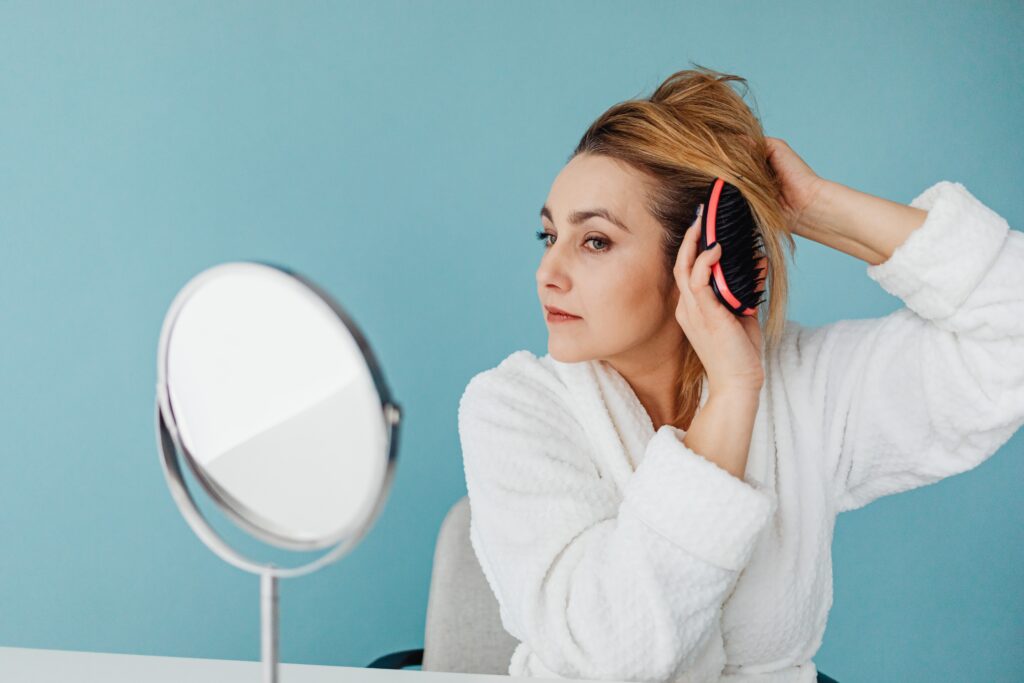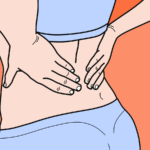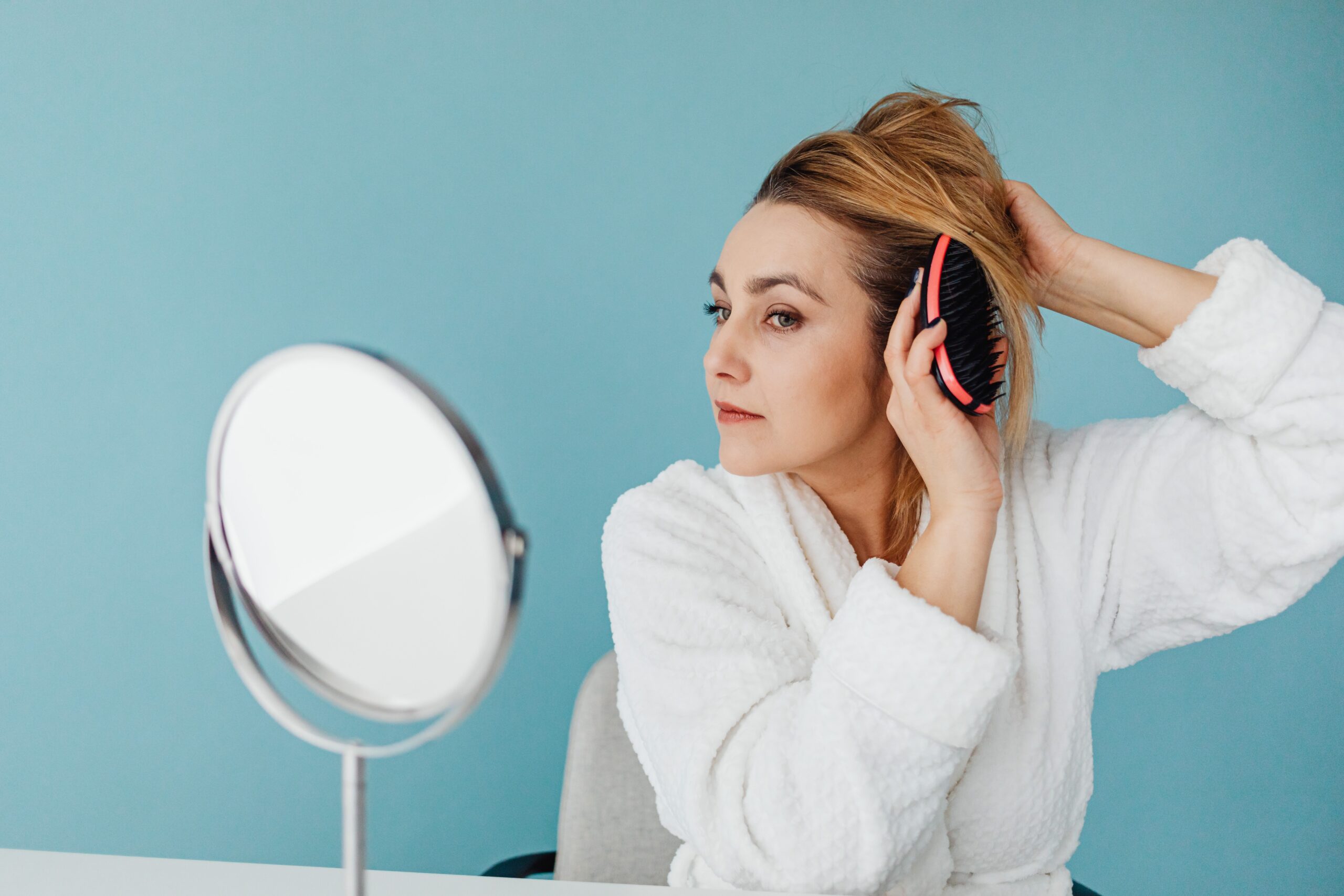
Are you struggling with hair loss and wondering if hormones are to blame? You’re not alone. Hair loss is a common concern, and hormones can play a significant role in this process. Are you struggling with hair loss and wondering if hormones are to blame? You’re not alone. Hair loss is a common concern, and hormones can play a significant role in this process
This post will delve into the relationship between menopause and hair loss, explore the factors at play, and provide practical strategies to help you manage and cope with this emotional and challenging experience.
Menopause is a natural phase in every woman’s life. Still, it often comes with a host of physical and emotional changes, especially if you don’t understand what is happening with your hormones during the transition to menopause.
Knowledge is power, and the better you understand what is happening, the more you can do to help yourself feel better and gain confidence.
One common concern that many women face during menopause is hair loss. It can be a very emotional time and stressful.
Here are some key factors in understanding the relationship between hormones and hair loss in Traditional Chinese Medicine (TCM):
- Kidney Qi and Essence: In TCM, the Kidneys are considered vital for hair health. Kidney Qi and Essence are believed to nourish the hair follicles and support hair growth. Kidney Deficiency can be linked to hormonal imbalances, aging, chronic illness, and stress, resulting in hair loss.
- Blood Circulation: Proper blood circulation is crucial for delivering nutrients and Qi (vital energy) to the hair follicles. Hormonal imbalances can affect blood circulation, leading to hair thinning or loss.
- Yin and Yang Balance: TCM emphasizes the balance between Yin and Yang energies in the body. Hormonal fluctuations during menopause, for example, can disrupt this balance, potentially contributing to hair loss.
- Liver Qi Stagnation: Stress and emotional factors can cause Liver Qi stagnation in TCM, which, over time, may obstruct the flow of Qi and blood to the scalp. This can hinder hair growth and lead to hair loss.
- Dampness and Phlegm: TCM considers the accumulation of dampness and phlegm as a possible factor in hair loss. Hormonal imbalances may disrupt the body’s ability to metabolize fluids properly, resulting in the accumulation of dampness, which can affect hair health.
To address hair loss from a TCM perspective, I typically focus on restoring the balance of Qi, nourishing the Kidneys, and promoting healthy blood circulation. This may involve:
- Acupuncture and Acupressure: These therapies can stimulate Qi and blood flow to the scalp, promoting hair follicle health.
- Herbal Medicine: TCM herbal formulations are tailored to an individual’s pattern of imbalance and can include herbs known to support hair growth and nourish the Kidneys.
- Diet and Nutrition: A handful of daily walnuts and good fats ( olive oils, ghee, avocados, salmon and organic red meat) support Qi, blood, and Yin-Yang balance, contributing to hair health.
- Lifestyle Adjustments: Stress management techniques like Tai Chi or Qi Gong are encouraged to reduce Liver Qi stagnation and emotional stressors. I recommend doing one qi gong move daily. Place your hands on your mid back, make a loose fist over your kidney area and light tap 50 times. The spot might be sore initially, so reduce the tapping to 20 times until the body adjusts.

- Massage your scalp: I recommend massaging castor oil on the scalp and brushing your scalp for at least 50 strokes from the forehead to the base of your skull daily.
- Hair Care Tips: use gentle shampoos, avoid heat styling and protect hair from sun damage—regular trims to promote healthy hair.
-
Hair Tip: don’t pull your hair back into a tight ponytail; stop wearing hats so your scalp can breathe.
I feel it is essential to consult a qualified TCM practitioner to see your specific condition, as TCM treatments are highly personalized and based on individual patterns of imbalance. While TCM offers holistic approaches to addressing hair loss, it may also complement conventional medical treatments for hormonal imbalances that contribute to hair loss.
If you are interested in working with me, you can go here





